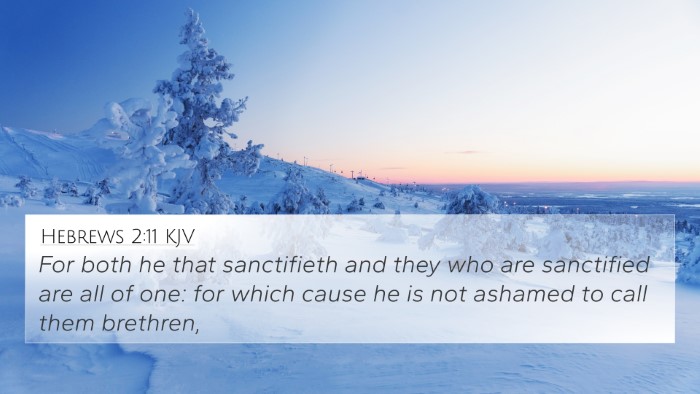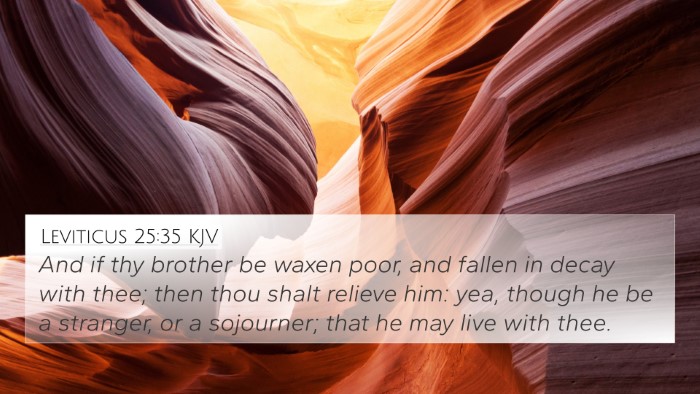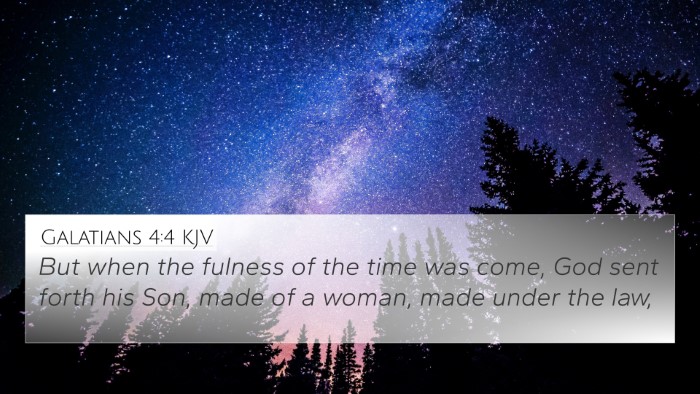Understanding Leviticus 25:48
Leviticus 25:48 states, "After that he may be redeemed: one of his brethren may redeem him." This verse is part of the larger context regarding the laws of the Jubilee and the redemption of property and persons. This passage discusses the provisions for the redemption of those who have been sold into servitude and how they might regain their freedom.
Meaning and Interpretation
The insights from notable public domain commentaries enhance our understanding of this verse:
- Matthew Henry: Henry emphasizes the importance of redemption and the kinship, noting that the act of redeeming is in essence a form of love and support among family members. This demonstrates the biblical principle of community responsibility, where relatives are called upon to help one another in times of need.
- Albert Barnes: Barnes offers the view that this verse underlines the necessity of maintaining family ties and the serious implications of loss of freedom. He notes that the provision for redemption is a comforting assurance that God's laws are not solely about judgment but also about hope and restoration.
- Adam Clarke: Clarke points out that the act of redemption not only serves as a legal transaction but is also imbued with spiritual significance. He stresses that this brings forth a deeper understanding of redemption which ultimately foreshadows the redemptive work of Christ.
Key Themes in Leviticus 25:48
This verse reveals several important themes:
- Redeeming Love: The verse reflects the principle of loving one's neighbor, particularly in cases of hardship.
- Family Responsibility: It shows the importance of family ties and responsibilities within the community.
- Freedom and Restoration: It encapsulates the idea that there is always a path to freedom and restoration, emphasizing hope amidst trials.
- Divine Provision: The legal framework provided shows God's care for His people through structured systems of support.
Related Bible Verses and Cross-References
The following cross-references elucidate the connections between Leviticus 25:48 and other biblical texts:
- Exodus 21:2: Discusses laws concerning Hebrew servants and their release.
- Ruth 4:1-10: The story of Boaz as a kinsman-redeemer reflects the themes present in Leviticus.
- Luke 4:18: Jesus proclaims the gospel and freedom alluding to the themes of redemption.
- Galatians 4:5: Highlights being redeemed from the law that resonates with connecting humanity to God through redemption.
- 1 Peter 1:18-19: Speaks of the precious blood of Christ as a means of redemption, echoing the theme from Leviticus.
- Hebrews 9:12: References Christ's redemptive work in the context of Old Testament practices.
- Jeremiah 32:7-8: Illustrates the act of redeeming property and showcases God's promises of restoration.
Connections Between Bible Verses
This verse serves as an important link between various biblical teachings, showing how scripture can be interrelated. Through examining these connections, readers are encouraged to delve deeper into themes such as:
- Thematic Connections: How redemption is not just a legal concept but a spiritual one throughout the Bible.
- Redemption Across Testaments: Comparison between the Old Testament laws of redemption and the New Testament fulfillment in Christ.
Tools for Bible Cross-Referencing
Utilizing comprehensive tools for Bible cross-referencing can enhance your understanding and study:
- Bible Concordance: An invaluable tool for finding key verses related to redemption and other themes.
- Bible Reference Resources: Books and online databases can assist in looking up references with further commentary.
- Cross-Reference Bible Study Methods: Techniques such as thematic study or word searches to trace related verses.
- Bible Chain References: This method can help in connecting verses in a chain-like manner for deeper insights.
Conclusion
Leviticus 25:48 encapsulates the vital principles of redemption, community responsibility, and the hope found within God's law. By cross-referencing this verse with others, believers can deepen their understanding of biblical themes and continue to explore the connections throughout scripture, reaffirming the consistency and coherence of God's message.








